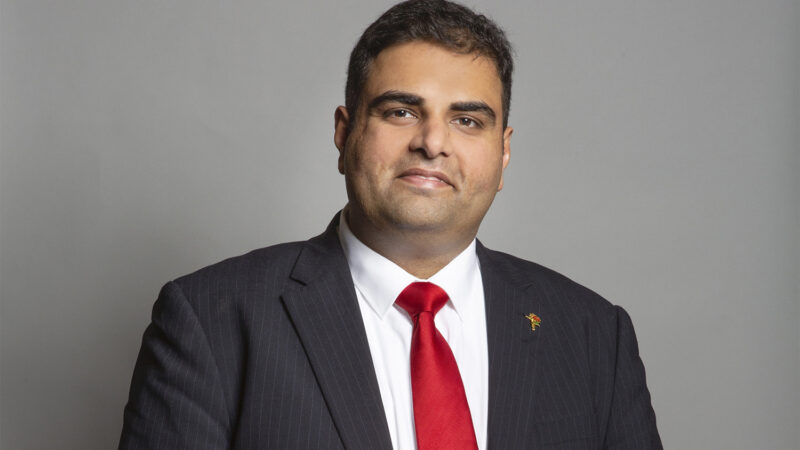
The announcement that the government plans to merge the Foreign and Commonwealth Office with the Department for International Development has been met with widespread concern, from global aid organisations and poverty charities to former Prime Ministers. And, as a member of the international development committee, my position is no different.
This move would almost certainly bring an end to Britain’s ring-fenced £15bn aid budget, not to mention the fact that it is incredibly poor timing, given we are in the middle of a global pandemic where such funding is essential to help alleviate the impact on some of the most vulnerable people around the world. And that’s before you even take into consideration the Whitehall redundancies that will inevitably result from such a merger, which – without any form of consultation – is completely unacceptable.
Perhaps most worryingly, the government is using the current crisis to railroad through its long-held plans to scrap DfID. An integrated review has been paused until the autumn, but the question that remains is: why make this announcement now? There appears to have been no consultation with the sector prior to making this decision, and almost none in the days since its announcement.
The proposed merger would be catastrophic on many levels, leading to a reversal of the progress made by successive governments in the more than two decades since 1997 in everything from health, education and poverty. Our aid not only helps to save lives, it also creates opportunities for people to improve their circumstances and life chances. It has lifted millions of people out of poverty, educated them and saved millions more.
The UK is the only G7 country to commit in legislation to spending 0.7% of gross national income on international development – a target set by the United Nations – and it has long been a sense of pride for many people. In recent years, our ratio of spending has only been bettered by a handful of countries – Sweden, Luxembourg, Norway, Denmark, the Netherlands. And Britain is the world’s second-largest international development donor, behind only the US.
The ring-fenced historic spending commitment, which last year equated to £15.2bn, helped to put 11 million children through school between 2012 and 2017. Despite reassurances from the Prime Minister in parliament last week that his plans would see the UK retain its 0.7% commitment, there has been little in the way of detail to show that that will happen. Or, indeed, set out what will happen to DfID’s long-term programmes.
The PM also used his appearance in the House of Commons to state that he was committed to proper scrutiny of the work of both foreign policy and international aid, but Dominic Raab and Anne-Marie Trevelyan subsequently wrote to international development committee chair Sarah Champion to announce the Prime Minister’s intention to abolish the committee. As Chris Bryant later pointed out when he challenged the minister, such a decision is in fact a matter for the House, as set out in the standing orders.
The objection to these plans hasn’t just come from MPs on the opposition benches. It has come from former Prime Ministers who understand better than most the role Britain plays on the world stage with its aid commitment. Significantly, in a rare foray back into politics since stepping down as PM, David Cameron was one of those to criticise his old friend Boris Johnson, stating that it was a “mistake” and would result in “less expertise, less voice for development at the top table and ultimately less respect for the UK overseas”. This followed similar concerns raised by former Prime Ministers Tony Blair and Gordon Brown.
The charity sector is outraged by this decision. Appearing before the international development committee last week, Oxfam UK’s chief executive Danny Sriskandarajah said, with half a billion people at risk of being pushed into poverty as a result of the Covid-19 pandemic, the move is “scarcely believable”. Similar comments were expressed by Save The Children UK, Concern Worldwide and Christian Aid.
Turning to scrutiny, 75% of last year’s £15.2bn spend on Official Development Assistance (ODA) came from DfID’s budget. There must continue to be proper oversight of ODA spend going forward, not least given it is underpinned by four Acts of Parliament and therefore cannot simply be changed at the whim of the Prime Minister.
Independent bodies such as the international development committee are vital for ensuring that the government of the day secures the best possible deal for those who are in most need around the world. That work cannot just be handed over to the foreign affairs committee, given the demands already on their time and the specialisms involved in development work. There are also concerns such as the cost and loss of skills from the resulting redundancies. And all of this will take place amid the chaotic backdrop of Brexit.
It is therefore vital that DfID be allowed to continue and that the scrutiny mechanisms existing alongside it are kept in place. Their removal would mean that the process of distributing aid would become far less transparent, with little accountability. And Britain would have even less say on global affairs. As my Labour colleague and chair of the international development committee Sarah Champion said: “In the long run, we will have shot ourselves in the foot on the world stage”.




More from LabourList
Government abandons plans to delay 30 local elections in England
‘The cost of living crisis is still Britain’s defining political challenge’
‘Nurses are finally getting the recognition they deserve’